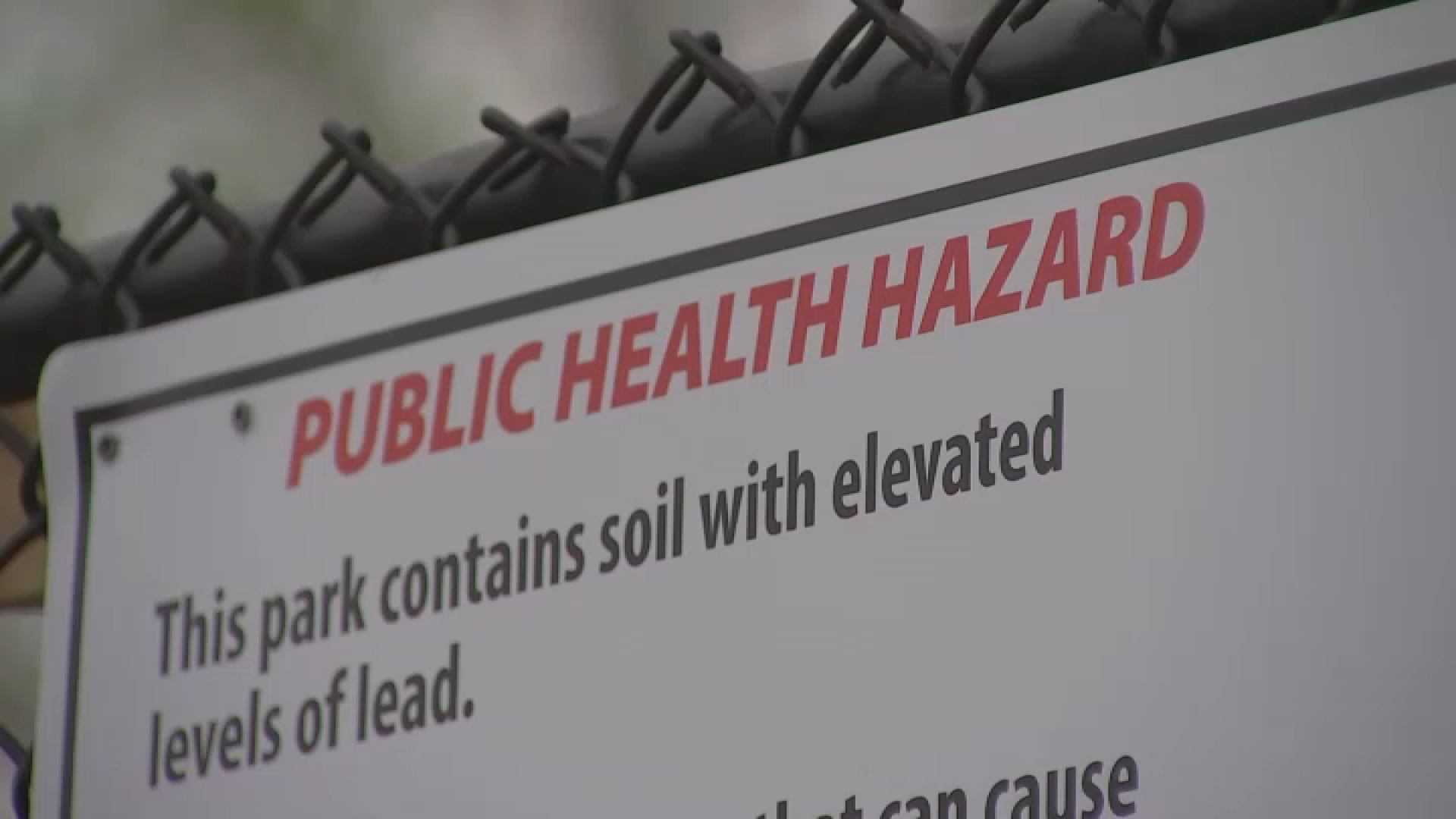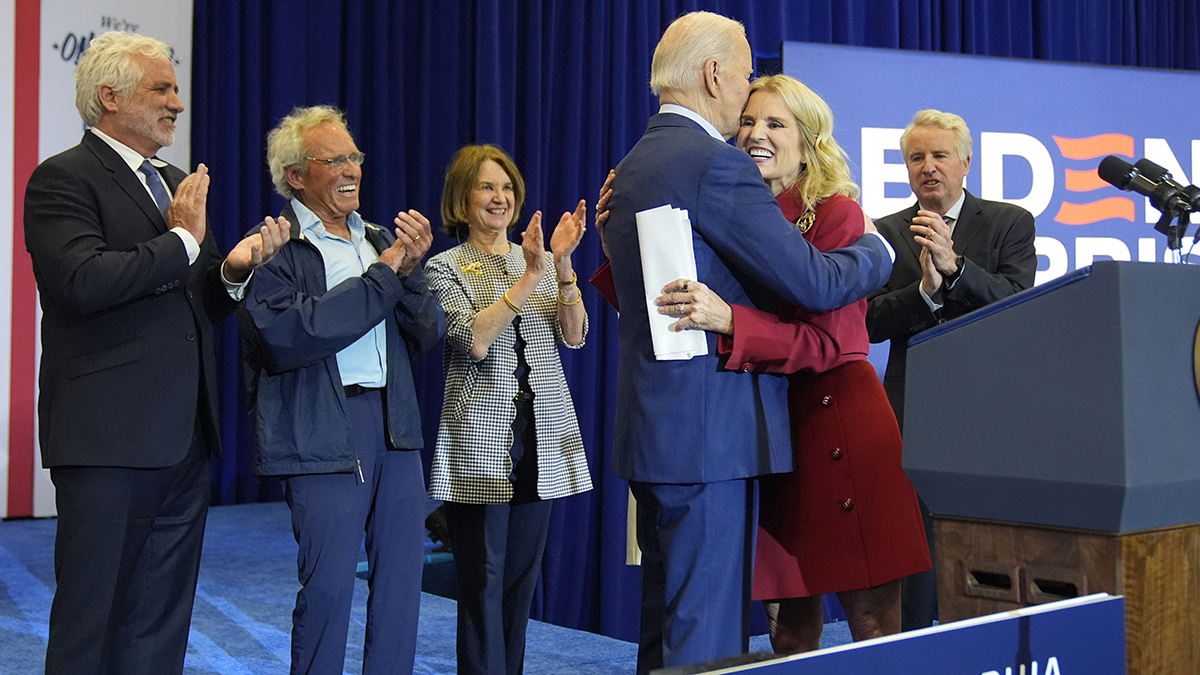With the debate over U.S. immigration laws in full swing, we thought we would see what's happening in Hazleton, Pennsylvania. The city drew national headlines in 2006 when it attempted to restrict the access of undocumented immigrants to housing and employment.
While some Spanish-speaking residents build new lives in the old coal city, longtime residents remain split over the changes at home.
Amilcar Arroyo, the publisher of a Spanish-language newspaper, shows off the businesses in his building -- evidence of the city's sizable Latino population.
"We have an insurance agent, we have a lawyer, we have a cafeteria," he says. "We have a migrant education program."
It's not hard to find a Latino business in Hazleton these days. Arroyo says Latinos are now firmly establishing themselves as a part of the city.
"Children that came with their parents 10 years, seven years ago, at the age of 11, 12. Right now they are in the college. Some of those they already graduate from college," he says. "They are fully English speaking, they don't speak with accents like me."
They're putting down roots in Hazleton despite its recent history. In 2006, the city passed a law penalizing employers for hiring illegal immigrants and landlords for renting apartments to them.
The law was eventually struck down.
Local
Breaking news and the stories that matter to your neighborhood.
Change is constant in Hazleton
This isn't the first time Hazleton has seen a wave of change, says Mayor Joe Yanuzzi, who was born and raised here. "After the war, whew, the mines went down, silk mill picked up and left, had this union dispute, and the town crashed," he recounts.
Businesses moved away, and so did the kids who graduated from high school moved away. Now, Yanuzzi says, the immigrants have added children to the city's aging population, and put businesses back in empty storefronts.
"And now it's like 90, maybe 85 percent filled and we're happy with that," he said. "I just have a problem with the illegals."
Hazleton resident Chris DiRienzo agrees.
"I'm all for coming to America and experiencing the American Dream," he said. "But doing it the right way, through the proper channels, is the right thing to do and a lot of that is not being done here."
DiRienzo says the city's change has not been for the better.
Reactions vary among longtime residents
Longtime Hazleton area residents are responding to their new neighbors in different ways.
Elaine Maddon Curry says they remind her of her grandparents.
"My grandparents came here from Italy, never spoke English," she said. "My mother went into the schools only speaking Italian."
To assist the newcomers, Curry helped found a group called Concerned Parents of the Hazleton Area.
"We roughly have about 80 to 100 adults who volunteer from the community teach English different times of the day, different times of the week," she said. "We have 43 new American citizens as a result of our classes and we also do children's programs."
But the city does face some serious problems, says Police Chief Frank DeAndrea, including drugs and gangs. He doesn't blame the city's newer residents for the rise in crime.
"There are as many white and black members of this entire Hazleton area involved in gangs, as there are Latinos," he said.
Bridging language and community gaps
Trying to confront such serious challenges is made ever more daunting, DeAndrea says, because of the language gap between new and old residents. As chief of police, he said he feels compelled to do something to help his officers communicate with the new residents.
"It's only fair to those victims and it's only fair for us to be able to do a thorough investigation. I need to bridge those gaps quickly," DeAndrea said.
Immigrants are coming to Hazleton not just for jobs but also cheap housing, friendly communities, and good schools, according to Kevin O'Neil who studied Hazleton back when he was at Princeton University.
"Just dealing with illegality won't change demographics," he said. "It also matters whether communities have the resources to deal with things like rising school enrollments and to be able to provide English language training and to be able to sort of integrate people and bring them into their community."
On a national level, offering a path to citizenship for undocumented immigrants could help, O'Neil said, by taking illegality out of the equation and by cooling down the political fires.
Back in Hazleton, some are taking a step toward that goal.
A new community center plans to offer educational and athletic activities at little or no cost -- in the hope that learning and playing together will integrate this splintered city.
This story was reported through a partnership in news coverage between NBC10.com and NewsWorks.org.



